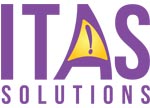
In the digital age, effective data governance is the linchpin for ensuring the security, integrity, and compliance of organizational data. In this blog, we delve into essential data governance strategies, focusing on best practices for data classification, access controls, and policy enforcement.
Understanding Data Governance: The Bedrock of Security
Data governance is a holistic approach to managing and protecting data throughout its lifecycle. It involves defining policies, procedures, and responsibilities to ensure data quality, security, and compliance. By implementing robust data governance strategies, organizations fortify their defenses against potential breaches and unauthorized access.

Best Practices for Data Classification
Identifying Critical Data: Begin by identifying and classifying critical data. Understand the value and sensitivity of each type of information within your organization. This step lays the foundation for targeted protection measures.
Categorizing Data Types: Classify data based on its type and importance. Utilize categories such as public, confidential, and sensitive. This classification helps prioritize security measures according to the criticality of each data type.
Automated Classification Tools: Leverage automated tools to streamline the data classification process. These tools use predefined rules and machine learning algorithms to categorize data efficiently, reducing manual efforts and minimizing the risk of human error.
Implementing Robust Access Controls
Role-Based Access Controls (RBAC): Adopt RBAC to assign specific access permissions based on job roles. This ensures that employees only have access to the data necessary for their responsibilities, limiting the potential for unauthorized exposure.
Regular Access Reviews: Conduct regular reviews of user access permissions. Periodically reassess and adjust access controls to align with organizational changes. This proactive approach helps prevent the accumulation of unnecessary privileges.
Encryption for Sensitive Data: Implement encryption protocols, especially for sensitive data. Encryption adds layer of protection, rendering data unreadable to unauthorized individuals even if access is gained.
Enforcing Data Governance Policies
Clear and Concise Policies: Establish clear and concise data governance policies. Ensure that employees understand their responsibilities and the consequences of non-compliance. Transparency is critical to fostering a culture of data security.
Continuous Training and Awareness: Conduct regular training sessions to keep employees informed about the latest data governance policies and security practices. An educated workforce is more likely to adhere to policies, reducing the risk of accidental breaches.
Automated Policy Enforcement: Implement automated tools to enforce data governance policies consistently. These tools can monitor data activities in real-time, alerting administrators to potential policy violations and enabling swift corrective actions.
Benefits of Effective Data Governance Strategies
Enhanced Security: Robust data governance strategies act as a bulwark against security threats. By proactively managing data access and enforcing policies, organizations significantly reduce the risk of data breaches and cyber-attacks.
Improved Data Quality and Integrity: Data governance ensures the accuracy and integrity of information by establishing standardized processes. This, in turn, enhances decision-making capabilities and builds trust in organizational data.
Regulatory Compliance: Compliance with data protection regulations becomes more achievable with effective data governance. By aligning policies with regulatory requirements, organizations avoid penalties and legal complications.
In conclusion, mastering data governance strategies is essential for organizations seeking to fortify their data security, maintain data integrity, and achieve regulatory compliance. By implementing best practices in data classification, access controls, and policy enforcement, businesses can navigate the complex data landscape with confidence.
ITAS Solutions offers IT consulting, data security, management solutions, and Houston networking services.
Help your business grow by partnering with ITAS Solutions today.



